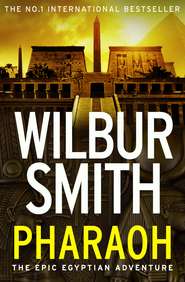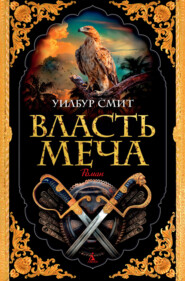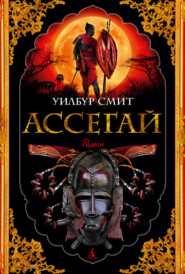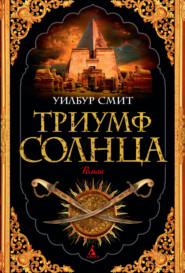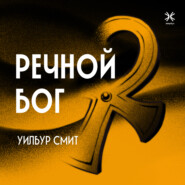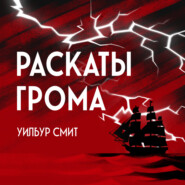По всем вопросам обращайтесь на: info@litportal.ru
(©) 2003-2024.
✖
War Cry
Автор
Год написания книги
2019
Настройки чтения
Размер шрифта
Высота строк
Поля
Before the war, Dr Hector Thompson (to give him his proper title) and his wife had provided the expatriate community’s medical care virtually single-handed. Since then, however, a European Hospital had been set up to care for the white community and the Thompsons had moved into semi-retirement, running a small general practice up-country. The Doc, a genial, reassuring Scotsman with a full head of white hair and a neatly clipped beard to match, took Eva’s blood pressure and murmured, ‘Hmm, one-thirty-five over eighty-five, a little on the high side. Tell me, my dear, have you had any other symptoms apart from dizziness? Headaches, for example, or blurred vision?’
‘No,’ Eva replied.
‘Not felt sick or vomited?’
‘Not since the morning sickness passed, but that was a couple of months ago.’
The doctor thought for a moment. ‘You have had trouble in the past carrying a baby to term and we don’t want to lose this one. On the other hand, we live at a much higher altitude than our British bodies were designed for and in a tropical climate, so there are all sorts of reasons why you might feel off-colour. I advise plenty of rest and no great exertions of any kind. I’ll also give you some aspirin. Take two if you feel either a headache or nausea and if symptoms persist for more than an hour or two, get in touch. Don’t worry about calling me out in the middle of the night. That’s what I’m here for.’
The wager with de Lancey that Leon had thought so important now seemed entirely irrelevant. ‘I’m going to call him to say that the whole thing’s off,’ he told Eva when they got home from their visit to Doc Thompson. ‘If he makes me forfeit the money, so be it. What matters is staying here with you and making sure you’re all right.’
‘But I am all right,’ she insisted. ‘I felt a little dizzy, that’s all, and you heard what Doctor Thompson said, it was probably just a spot of altitude sickness. I want you to win your wager. And I want to be there to see you win.’
‘Absolutely not!’ Leon insisted. ‘You’re not supposed to have any great exertions, those were the doc’s own words.’
She laughed, ‘Being a passenger on the drive down to the polo club is hardly an exertion, and nor is sitting in a comfortable chair in the shade when I get there. In any case, where do you think the Thompsons will be on the great day? Watching the race, just the same as everyone else for miles around. So if I do happen to feel a bit poorly, that will be the best place to be. Won’t it?’
Leon could not dispute his wife’s logic. And so, on the seventh morning after the dinner at Slains, he, Eva and Saffron, who was bouncing up and down with excitement at the thought of the event, set off before dawn and drove through the cool morning mist to the Wanjohi Valley Polo Club. Loikot came behind them, driving one of the estate’s trucks, filled with everything the family would need to get them through the day and as many of the domestic and estate staff who could cram into the cabin and cargo area, or simply cling on to the outside of the vehicle.
The whole country seemed on the move. Farms and businesses stood deserted by their managers and workers alike. Shops and restaurants had put ‘Closed’ signs in their windows. Many of the chefs and shopkeepers, however, had simply shifted their operations to the polo club where an impromptu market had mushroomed, with stalls selling parasols, folding chairs and bottles of pop, alongside pits where fires were being stoked as whole sheep and great sides of beef were rotating on spits, while chops and sausages sizzled on griddles.
It was not just the colonists who had come to witness the spectacle. Once word had reached the native Kenyan population that one of their number was taking on their white masters, tribal antagonisms had been set aside, for the time being at least, and half the country seemed to be on the move – men and women of the Masai, Kikuyu, Luhya and Meru peoples – coming by foot, ox-cart, bus, or any other means they could find to join the carnival.
The settlers were all arrayed along one side of the polo field around which the race would be held, in front of the clubhouse, with native Kenyans massed opposite them on the far side. The actual field itself had been kept empty, so that the competitors could be seen at all times, to prevent any possibility of cheating. The team principals would remain in the centre of the field, with those of the white runners who were still awaiting their turn to compete. Major Brett was serving as umpire while a dozen African police constables, arrayed around the course and supervised by a single white sergeant, would have the dual tasks of reporting any breaches of fair play, and also keeping the crowd in order.
‘I’ll be frank, Courtney, I’m not entirely happy about this whole palaver that your damned wager has sparked,’ Major Brett told Leon soon after he, Eva and Saffron had arrived at the club.
‘I had no idea there would be quite such a turnout,’ Leon replied.
‘Well, that’s as may be. I’m a fair man, have to be in my position, so I accept that you could not reasonably have anticipated this level of public interest in a private wager between two gentlemen at dinner.’
‘Precisely.’
‘Nevertheless, I foresee the potential for considerable unrest when the native is defeated. John Masai’s an excitable chap when his spirits are inflamed, particularly if he’s got his hands on alcohol. I banned sales to the native population, of course, but I don’t doubt they’ll find a way to have a drink or two. And if they think that we have in any way conspired to make their chap lose, well, I just hope you don’t have anything serious on your conscience when the day is out, that’s all I can say.’
For a second, Leon suddenly wondered whether the blood Lusima had been talking about might be that of the spectators. He was shocked to realize that he felt relieved at that possibility. It seemed almost like a reprieve for his family.
Major Brett interpreted Leon’s silence as a refusal to accept any responsibility.
‘For God’s sake, man, you can’t possibly believe that three Englishmen can’t beat a single native, can you?’
The question dragged Leon’s mind back to the here and now. ‘I would hardly have staked ten thousand pounds, Major, if I didn’t think the Masai would win.’
Brett shook his head disapprovingly. ‘Don’t have much time for de Lancey. He strikes me as a bit of a bounder, not pukka at all. But he’s got a point when he says you love the black man more than your own race. Wouldn’t put it quite that strongly myself. But he’s got a point.’
The major took out his pipe and started stuffing it with tobacco, tamped it down, put a match to the bowl and started puffing away, encouraging the tobacco to burn. Leon was looking around, trying to spot Manyoro, but it was his competitors who appeared first.
‘Speak of the devil,’ said Brett, looking past Leon. ‘De Lancey’s arrived. Got his team with him too, by the look of it.’
Leon turned and, sure enough, there was de Lancey, already red-faced and sweaty though the sun had barely begun to burn away the cloud that tended to hang over the valley in the early part of the day. Behind him were three men arrayed in various combinations of tennis shoes, boots, shorts, vests, shirts, scarves and cricket jumpers. A couple had actual running spikes hanging from laces tied around their necks. One wore a jumper with dark blue stripes around the V-neck and the waist and the letters ‘OUAC’ surmounted by a laurel crown on the chest. The other had an almost identical jumper, save that the stripes were a pale sky-blue and the letters on his chest read ‘CUAC’. Leon was familiar with the traditional rivalry between Dark Blues and Light Blues: these two were Oxford and Cambridge men, and that being the case, the letters ‘UAC’ would surely stand for ‘University Athletics Club’.
You never know, they might just be long jumpers or javelin throwers, he thought, cheering himself up as de Lancey stuck out a moist palm and gave Leon one of the softest handshakes he’d ever experienced. ‘Morning, Courtney, hope you’ve brought the lolly,’ de Lancey said. ‘I’ve recruited as good a team as you’ll find south of Suez. Would you care to be introduced?’
‘By all means,’ said Leon.
‘Right-ho! Well, first I’d like you to meet Jonty Sopwith, though everyone calls him “Camel”, you know, after the fighter plane.’
Leon nodded. ‘Yes, even we Africans are aware of the Sopwith Camel. Good to meet you, Sopwith.’
He exchanged handshakes, a much firmer one this time. Sopwith was pale-skinned, ginger-haired and blue-eyed. He was tall and rangy, with long legs and a barrel chest, suggesting that he had a good stride, with the heart and lungs to power it. He looked as though he was in his early to mid twenties, just young enough to have missed the war, but in the prime years for an athlete. ‘You’re an Oxford man, I see.’
‘Yes, sir. Ran in the Varsity team all three years I was there.’
‘What was your event?’
‘I’m a pretty decent half-miler, turned out a few times at the three-A’s, got to the final twice, actually.’
So you’re good enough to reach an Amateur Athletics Association final, competing to be British champion. No wonder de Lancey looks so cocky, Leon thought.
‘And this is Dr Hugo Birchinall,’ said de Lancey proudly as the man in the Light Blue jumper held out his hand. ‘Birchinall works at the European Hospital – his specialty was the sprint back at Cambridge.’
‘Good morning, doctor,’ Leon said, sizing Birchinall up. As befitted a specialist in the longest of the sprints, Birchinall was slightly shorter than Sopwith, but more powerfully built, heavier in the hips and the shoulders. He had short dark hair, and a swarthy complexion so that he seemed an altogether more brooding, almost menacing figure than his more boyish teammate.
A smirk crossed de Lancey’s face, as if to suggest that while he had begun his introductions with two renowned athletes, he had left the very best till last. ‘Now for the final member of our team. I confess, he is not an Englishman, but he is white, and very proudly so, which was, I think you will agree, the essential element in our wager. So, Courtney, may I present a gentleman who has recently arrived in Kenya in search of opportunities as a farmer, Mister – or should I say Mijnheer – Hennie van Doorn. He’s like you, old boy, a bit of a native African.’
Van Doorn did not shake Leon’s hand. ‘You any relative of that bastard Sean Courtney?’ he said, in his guttural Afrikaaner accent.
‘Distant cousin, why?’
‘Because I lost most of my family in the war against the British, that’s why.’
Leon knew he meant the Boer War, rather than the more recent conflict.
‘My father died fighting men like General Courtney,’ van Doorn went on. ‘My mother and my baby brother perished in the Bloemfontein concentration camp. Now I do not have any family left. Not even distant cousins.’
‘I’m truly sorry that your family suffered so badly,’ Leon said. ‘But I was born in Egypt. My father made his money trading up and down the Nile, and when he went to war, it was against the Mahdi at Khartoum. We had no part in what happened in South Africa.’
‘You have a big estate here, jah?’
‘Yes.’
‘We had ’n klein plaas, a small farm. It was on the Highveld, sixteen hundred metres up, not much lower than it is here, eh. Every day I would walk to school, six kilometres there, six kilometres back. Every day. But most of the time I did not walk, because if I walked I had to start before the sun was up and I did not like walking across the veldt in the dark, with all the wild animals out there, just waiting to have little Hennie for their breakfast. So I stayed in bed until the sun came up. But now I have a problem, for if I am late for school my teacher shall beat me and when I get home my father shall beat me even harder. So therefore I must run to school. Every day. Six kilometres there and six kilometres back. At sixteen hundred metres’ altitude. So maybe this kaffir of yours can beat these rooinek Englishmen. But trust me, Courtney, he cannot beat me.’
Leon could not deny that de Lancey had rustled up a strong trio to win him his ten thousand pounds. But where were Manyoro and the man he was bringing to be de Lancey’s opponent?
Leon looked around, scanning the crowd for the two tall, imperious Masai he expected to see striding towards him. Then he heard a voice shouting across the polo field, ‘M’Bogo!’ Leon turned and spotted Manyoro, emerging from the natives’ side of the ground. As was his custom when venturing into the white man’s world he had pinned the regimental badge of the King’s African Rifles to his red ochre shuka. The badge was polished as brightly as if Company Sergeant Manyoro were stepping out onto the parade ground and beneath it were arrayed his many medals for bravery, campaigns against the enemy and long service. The message was very clear: I have served the British Empire with honour and distinction and I deserve respect.
Leon was about to call out his own greeting, but then he paused, dumbstruck. For Manyoro was not accompanied by a proud morani warrior who had earned his right to be considered as a true Masai man by killing a lion with nothing but his assegai to defend him. Instead there was a diminutive figure who could barely be twenty, if that. He was far shorter than any normal Masai, the shiny top of his shaven head barely reaching Manyoro’s shoulder. And while the Masai tended to be both taller and much more slender than typical Europeans, this profoundly unimpressive specimen was not so much slender as scrawny, a fact made all the more apparent by the absurdly over-sized pair of British army shorts, presumably loaned to him by Manyoro, that were tied around his waist with string and hung down to halfway down his twig-like calves. This unlikely garment billowed around him as he walked so that he looked like a small child who’d dressed up in a pair of granny’s old bloomers.






